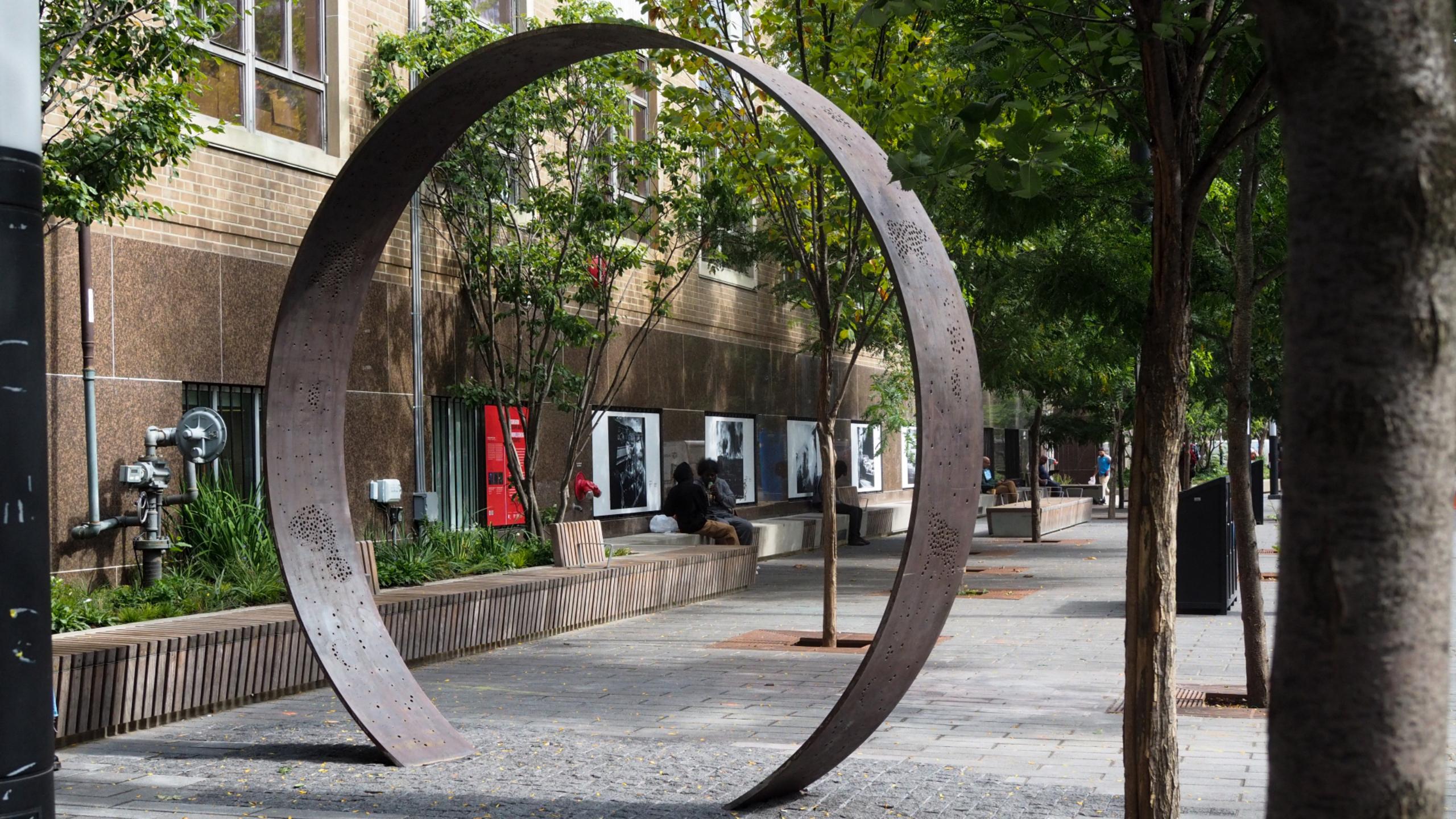By Jessica Mazze
While the Standing Strong (Mash Koh Wee Kah Pooh Win) Task Force delivered its final report and recommendations to the university, there is still hesitancy on just how much control and autonomy Indigenous faculty, students and staff will have when it comes to proper implementation and important steps toward reconciliation.
Sam Howden, a first-year master of social work student and equity coordinator at the Indigenous Students’ Association, has been active in advocating for the university’s name change to ensure that Egerton Ryerson’s legacy is no longer celebrated.
Howden is one of the key organizers of the “X University” community initiative and advocated for the university to cut ties with its namesake.
“We need to do better based on the fact that everyone is benefiting from being on [Indigenous] territory, whether it be in the liminal space of the internet right now or not,” said Howden.
In August, the Standing Strong Task Force released its final report with 22 recommendations for Ryerson, one of which was the suggestion that the university officially change its name.
The Task Force was created in September 2020 in response to growing calls for the university to cut ties with its namesake. Egerton Ryerson played an integral role in the creation of the residential school system in Canada.
“The way the task force was operationalized was extremely damaging,” said Howden, who is from the Red River Métis, under Treaty 1 land in Winnipeg.
“Some of the recommendations are fantastic,” said Howden who’s happy to see the recommendation of university support for the advancement of Black and Indigenous scholarship, which would potentially affect their work greatly with funding opportunities and better networking.
However, the process of how the report was created has exhausted Howden and left them and other students tired and weary after reading the full report.
Section 13 of the final report recommends that the university establish additional sustainable funding for Indigenous undergraduate and graduate initiatives.
Howden is a field assistant working with traditional medicines at Ryerson’s Urban Farm, an initiative that could see increased funding after the report’s recommendations.
Howden said there needs to be a form of restorative justice that empowers Indigenous students and faculty to exercise power.
“Who are we going to appoint to be the stewards of this type of change? And how do we do that in a way that’s respectful?” said Howden.
Howden said that even the land around campus still honours colonial legacies. They cited streets like Dundas and Jarvis as examples of how our society still celebrates those who contributed to slavery and genocide.
“Somebody may say ‘Oh, [street names] don’t harm anybody’, but what do they know?” said Lynn Gehl, an author and Indigenous rights advocate.
Dundas Street, for example, is named after Henry Dundas, a Scottish lawyer and politician, who in a motion to “abolish slavery,” amended it to say that slavery should be abolished gradually causing controversy then and now.
According to Democracy Now!, Dundas was nicknamed “The Great Tyrant” and was subsequently impeached in 1806 following this action.
Like Howden, Gehl believes that it’s crucial to implement mandatory courses that teach students about the land the university occupies.
Gehl said when it comes to creating space for Indigenous faculty, an intersectional approach is crucial to all teachings, one that makes room for Indigenous philosophy and knowledge.
“The university has to have a decolonized intersectional framework,” said Gehl.
One of the things Gehl recommends the university implement is a consultant that can aid in the hiring of tenured professors to avoid problems of hiring faculty based solely on their claimed Indigeneity.
According to Gehl, having a consultant can prevent missteps in hiring, like at Queen’s University, where a hiring scandal around Indigenous faculty made news in June 2021.
While the Standing Strong Task Force’s final report encourages hiring more Black and Indigenous faculty members, it doesn’t establish any type of framework for the tenure of such professors.
“These powerful universities have to be proactive in that, as they should be really accommodating and bending over backwards for Indigenous professors,” said Gehl.
“We are deserving of more than a millimetre of change.”
Howden said they are disappointed by the vague language of the report and wish that it focused on recommendations that were not based on commemorating Ryerson.
“It’s really a Western colonial concept to liken the idea of commemoration and also the individual notion of celebrating only people, rather than collectives or land,” said Howden.
“I just want [real change] to actually happen, where people examine and unpack their privilege and unpack their identities and see how they situate themselves in this conversation.”










Leave a Reply